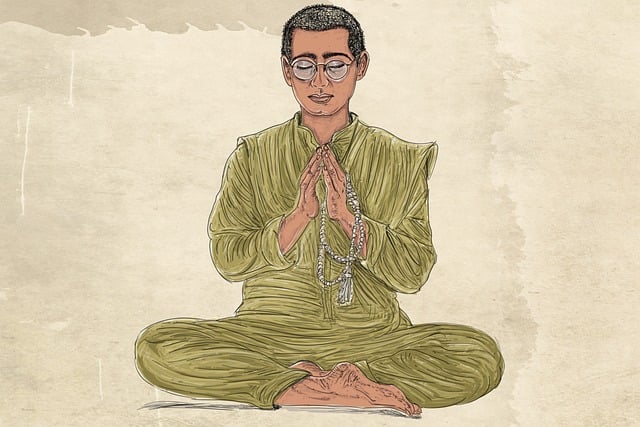Navigating DHS legalities in Oregon requires understanding the Department of Human Services' (DHS) child welfare practices, which aim to protect and support at-risk children. This process involves knowledge of Oregon's laws, regulations, and the unique challenges faced by families. Professionals, including social workers and attorneys, must guide parents through investigations, court processes, and case management while ensuring fair outcomes for vulnerable children. Key navigators, social workers, use strategic tools to address immediate needs and systemic issues, facilitating positive outcomes with clear communication. Resources like legal aid, counseling, and economic assistance support families, with DHS providing specialized case management and partnerships with non-profits offering holistic care.
In Oregon, the Department of Human Services (DHS) plays a pivotal role in child welfare, managing cases that require protection and support. This comprehensive guide navigates the intricate world of DHS child welfare, focusing on Oregon-specific practices. We explore the legal framework governing rights and responsibilities, highlighting the crucial role social workers play in effective case management. Additionally, we delve into resources and interventions designed to support families and children, emphasizing positive outcomes through strategic navigation of DHS legalities.
- Understanding DHS Child Welfare Cases in Oregon: A Comprehensive Overview
- Navigating the Legal Framework: Rights and Responsibilities of All Parties Involved
- The Role of Social Workers: Best Practices for Effective Case Management
- Supporting Families and Children: Resources and Interventions for Positive Outcomes
Understanding DHS Child Welfare Cases in Oregon: A Comprehensive Overview

Navigating DHS legalities in Oregon involves understanding the complex web of child welfare practices and procedures managed by the Department of Human Services (DHS). This process encompasses a range of services aimed at ensuring the safety, well-being, and stability of children whose families are facing challenges. In Oregon, DHS works to provide support, resources, and interventions when a child’s home environment is deemed unsafe or unsuitable. Cases may arise from various situations, including neglect, abuse, substance abuse within the household, or family instability.
The department’s role is multifaceted, involving investigation, case management, placement of children in suitable homes, and fostering collaboration between various agencies and community resources. Effective navigation requires a deep understanding of state laws and regulations governing child welfare, as well as an awareness of the unique challenges faced by families involved in these cases. This comprehensive overview aims to demystify the process for both professionals and families navigating DHS legalities in Oregon.
Navigating the Legal Framework: Rights and Responsibilities of All Parties Involved

Navigating the complex web of DHS legalities is a critical aspect of handling child welfare cases in Oregon. All parties involved—from social workers and attorneys to parents and guardians—must be well-versed in their respective rights and responsibilities. Understanding these dynamics ensures fair processes and outcomes for the vulnerable children under DHS care.
The state’s laws and regulations dictate the steps taken during investigations, court proceedings, and case management. Parents have the right to legal representation, access to case files, and an opportunity to challenge any allegations made against them. Conversely, they are also responsible for cooperating with DHS, attending meetings, and adhering to court-ordered plans aimed at ensuring the child’s safety and well-being. Social workers play a pivotal role in guiding these processes while upholding ethical standards and advocating for the best interests of the child.
The Role of Social Workers: Best Practices for Effective Case Management

Social workers play a pivotal role in handling DHS child welfare cases, serving as the primary point of contact for families involved in the system. Their expertise lies in navigating the complex DHS legalities and ensuring the best interests of children are at the forefront. These professionals employ a range of best practices to manage cases effectively, including comprehensive assessment strategies that consider both the child’s immediate needs and underlying systemic issues within the family.
By utilizing evidence-based interventions and tailored support services, social workers can foster positive outcomes for children and families. They advocate for clear communication channels, maintaining regular contact with all stakeholders—from parents to legal representatives—to ensure informed decision-making. This collaborative approach facilitates a coordinated response, helping to streamline the case management process while advocating for the rights and welfare of the child within the DHS framework.
Supporting Families and Children: Resources and Interventions for Positive Outcomes

Supporting families and children is a crucial aspect of handling DHS child welfare cases in Oregon. When facing the complexities of navigating DHS legalities, various resources and interventions can significantly enhance positive outcomes. These include access to legal aid, counseling services, and economic assistance programs designed to stabilize households and strengthen family bonds.
Oregon’s DHS offers specialized support through case management, which connects families with community resources like education programs, job training, and healthcare. Additionally, fostering partnerships with non-profit organizations provides further assistance, ensuring that children and their families receive holistic care tailored to their unique needs. This collaborative approach not only addresses immediate concerns but also equips families with the tools necessary for long-term success.
